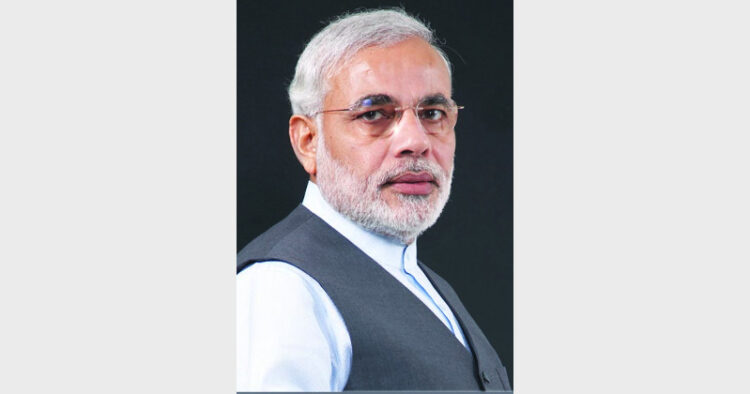How many chief ministers in this country will have the courage to say that he did not do anything for the minority community, or the majority for that matter. Gujarat Chief Minister Narendra Modi, in his Sadbhavana Mission to bring about harmony, unity and prosperity in the country, in his speech at the end of the third day of fast, made it amply clear that the country’s rulers will have to change their priorities to suit the changing ambitions of an emerging economy.
The speech at the Gujarat University Convention Centre where thousands had gathered and millions of ordinary citizens who were glued to their TV sets around the country to watch him, had several precedents in terms of setting the stage for a new political discourse that the man on the street would identify with.
Recounting the meeting with Justice Sachar Committee which went into the role of state governments in providing special treatment for minorities, Narendra Modi was cut and dry in his comment. “I told the visibly amazed Sachar Committee members that my government does not do anything special for the minority or the majority community for the sake of pandering to their sensibilities. My government in Gujarat works very hard to meet the aspirations of every citizen whatever their religion or upbringing”.
Vote bank politics is at the root of all the ills in the political system in India, he averred. The success of Gujarat which is today being recognised not only in the country but also by multilateral agencies around the world, has its bearings in the way government decisions were taken at every level of administration. Most remarkably, Narendra Modi told the lustily cheering crowd that till the time he became the Chief Minister of Gujarat he was quite cynical about the way things worked out in decision-making process. “I always thought that there was an insurmountable obstacle in getting things done properly. But when I came to the helm of the affairs in Gujarat I had no qualms in introducing measures that were tough. Those measures paid huge dividends in terms of development for the people”, he said.
His personal experience as a Chief Minister bolstered his new ways of administrative efficiency. The culmination of the three-day Sadbhavana Mission fast was Modi’s speech which was most eagerly awaited. The Chief Minister of Gujarat delved deep into his model of governance in the state for the last ten years. Recently, the World Bank as well as a US Congress think tank have acclaimed Gujarat as the most well governed state in India and the nearest competitor pales in comparison. The think tank also concluded that Narendra Modi was incorruptible.
The Chief Minister also alluded to the wide spread corruption at thr Centre which has been party to one multi-lakh crore financial scandal after another. People in other parts of the country are sick and tired of the ineffective leadership at the Centre to control the cancer of corruption. People are fed up of the admission of failure to control the scourge of corruption. On the other hand, populism marks the highlight of Indian democracy, said Modi. Every politician takes decisions based on what will fetch him electoral dividends in the next election and that clouds the decision-making process of the entire system. In Gujarat the success lies in taking decision which had little bearing on the electoral outcome, but had everything to do with the larger good of the community.
During the Sadbhavana Mission what was remarkable was the presence of people from all walks of life as much as people from different faiths and religions. More so, because Narendra Modi in his inimitable style encompassed almost the issues that have become priority for common people—corruption-free governance, education and healthcare for all, drinking water, infrastructure development, favourable business environment and uninterrupted and quality power supply. “The most important indicator for good governance is the ability of the state to ensure peace and tranquility under all circumstances:”, Modi said while explaining that Gujarat was a leader in providing a tranquil environment for progress. This progress has been possible only on the basis of the state government’s no-nonsense administration of appeasing none while encouraging all legitimate activity of economic growth.
In all this, the best performing Chief Minister in India today, Narendra Modi made it clear that India has all the ability to be a leader in the world with its huge bank of talent. Only a leadership which has the sagacity and the courage can make it come of age.














Comments